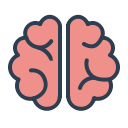Nootropics (pronunciation: /noʊ.əˈtrɒpᵻks/ noh-ə-trop-iks)—also called smart drugs and cognitive enhancers—are drugs,supplements, or other substances that improve cognitive function, particularly executive functions, memory, creativity, ormotivation, in healthy individuals. The use of cognition-enhancing drugs by healthy individuals in the absence of a medical indication is one of the most debated topics among neuroscientists, psychiatrists, and physicians which spans a number of issues, including the ethics and fairness of their use, concerns over adverse effects, and the diversion of prescription drugs for nonmedical uses, among others. Nonetheless, the international sales of cognition-enhancing supplements exceeded US $1 billion in 2015 and the global demand for these compounds is still growing rapidly.
The word nootropic was coined in 1972 by a Romanian psychologist and chemist, Corneliu E. Giurgea, from the Greekwords νους nous, or "mind", and τρέπειν trepein meaning to bend or turn.
